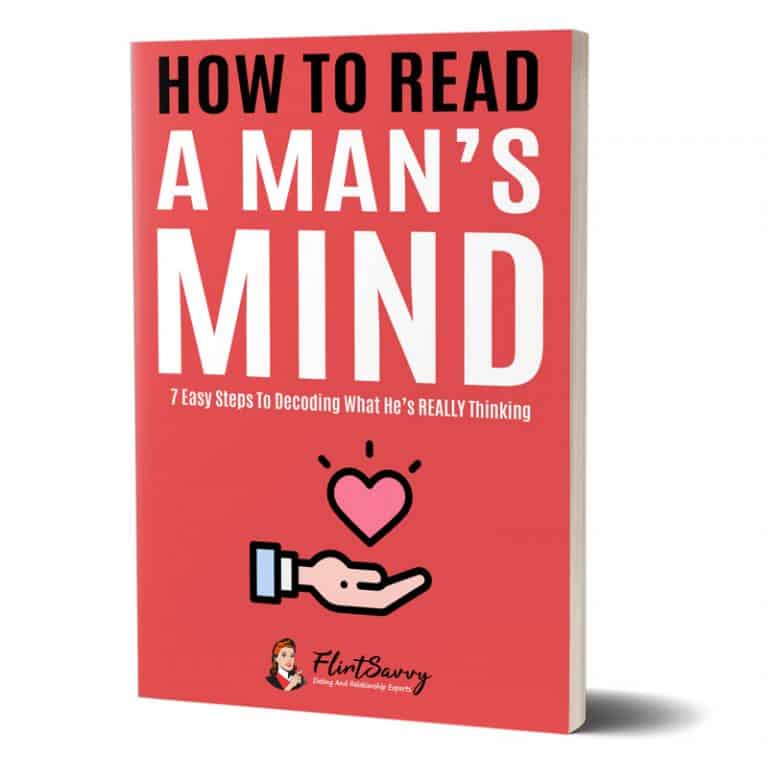Do you ever find yourself feeling inadequate or not good enough for your husband?
Do you feel like you’re constantly trying to please him, but nothing seems to be enough?
It’s a common feeling among many wives, and it can be incredibly frustrating and demoralizing.
But the truth is, no one should ever feel like they’re not good enough for their partner.
In this article, we’ll explore the root causes of these feelings and provide some tips on how to love yourself and communicate with your husband in a healthy way.
So, let’s dive in and discover why you are more than enough for yourself and your marriage.
Why Am I Not Enough For My Husband?
It’s important to understand that feeling like you’re not enough for your husband is not a legitimate excuse. No one is ever “too good” for another person. However, as human beings, we are irrational by nature and shaped by our experiences. It’s crucial to consider the root causes of these feelings and work on them.
One way to love yourself when your husband is making you feel inadequate is to speak up. Don’t suffer in silence or try to “keep the peace.” If your husband is trying to talk to you honestly and with love, listen. Both partners need to be willing to have hard conversations and work on the issues together. If you can’t fix the problem yourselves, try convincing your husband to go to a pastor, therapist, or counselor together.
Taking care of yourself physically is also important during those times when your husband is making you feel inadequate. It’s degrading and harmful physically and emotionally to constantly deal with being told you are “not good enough.” Remember that you can’t rely on any person, activity, possession, or thing to make you feel good enough for your husband. You need to learn how to love yourself so you feel good enough for everything life has to offer.
Understanding The Pressure To Be Perfect
One possible reason why you may feel like you’re not enough for your husband is the pressure to be perfect. Society often sets unrealistic standards for women, which can lead to feelings of inadequacy and low self-esteem. This pressure to be perfect can manifest in different ways, such as feeling like you need to have the perfect body, the perfect career, or the perfect home.
Perfectionism is not just about striving for excellence, but it’s also about the fear of failure and the need for control. This can lead to a constant feeling of anxiety and stress. It’s important to recognize that perfectionism is not a healthy way of living and can negatively impact your relationships, including your marriage.
If you or your husband struggle with perfectionism, it’s important to seek help. This may include talking to a therapist or counselor who can help you identify and challenge your perfectionistic beliefs. It’s also important to practice self-compassion and accept that you are human and have flaws.
Remember that your worth is not determined by how perfect you are or how much you accomplish. You are worthy simply because you exist. It’s important to focus on building a healthy relationship with yourself first, before trying to please others or meet unrealistic expectations. By doing so, you will feel more confident and secure in your relationship with your husband.
The Importance Of Self-Love And Acceptance
Self-love and acceptance are crucial for anyone dealing with feelings of inadequacy in their relationship. It’s important to understand that self-love is not selfish or narcissistic; it’s about accepting and nurturing your body, mind, spirit, and emotions. When you love yourself, you are better equipped to face the root causes of your fears and correct them to live confidently, securely, and optimistically.
Self-worth and self-confidence are also important aspects of self-love. While self-confidence is specific to certain areas of your life, self-worth is an overall evaluation of yourself. It’s essential to have a high sense of self-worth, as it helps you to be more healthfully available to your partner.
Making time for yourself is a crucial part of self-love. Schedule “me time” every day where you put yourself first over any other commitments or people. Do simple activities that you enjoy, such as reading, meditating, or going to the gym. Creating a self-love ritual can have cumulative benefits that add up over time.
When you start healing, growing, and thriving through self-love and acceptance, you learn to evaluate yourself more accurately. You no longer rely on others to validate your existence or define you. You feel increasingly connected with yourself, less frightened by rejection, and less likely to psychologically depend on others. You can recognize and accept your strengths and shortcomings, learn self-validation, step out of your comfort zone, change your behavior and false belief systems, make better choices, and feel that you are enough.
Communication Strategies To Strengthen Your Relationship
Effective communication is essential to building a strong and healthy relationship with your partner. Here are some communication strategies that can help strengthen your relationship:
1. Listen actively: Listening is a crucial part of effective communication. When your partner is speaking, give them your full attention and try to understand their perspective without interrupting or judging them.
2. Use “I” statements: Instead of blaming or accusing your partner, use “I” statements to express how their behavior makes you feel. For example, instead of saying “You never listen to me,” say “I feel unheard when you interrupt me.”
3. Practice empathy: Try to understand your partner’s feelings and perspective, even if you don’t agree with them. This can help you build a deeper connection and show your partner that you care about their emotions.
4. Avoid criticism and defensiveness: Criticizing your partner or becoming defensive during a conversation can escalate the conflict and damage the relationship. Instead, focus on expressing your feelings and finding a solution together.
5. Take responsibility for your actions: If you have made a mistake or hurt your partner, take responsibility for your actions and apologize sincerely. This can help rebuild trust and show your partner that you value their feelings.
Remember, communication is an ongoing process that requires effort from both partners. By practicing these strategies and working together to maintain healthy communication, you can strengthen your relationship and build a deeper connection with your partner.
Seeking Professional Help And Support
If you’re struggling with feelings of inadequacy and your husband is not able to provide the support you need, seeking professional help can be a great option. Therapy or counseling can provide a safe and supportive environment where you can explore your emotions and work through any underlying issues that may be contributing to your feelings of inadequacy.
Talking to a therapist or counselor can help you gain clarity on your thoughts and feelings, and provide you with tools to improve communication with your husband. It can also help you develop healthy coping mechanisms and build self-esteem, which can be crucial in overcoming feelings of inadequacy.
It’s important to choose a therapist or counselor who is experienced in working with couples and has a non-judgmental approach. Look for someone who makes you feel comfortable and understood, and who is willing to work collaboratively with both you and your husband.
If your husband is hesitant to seek professional help, it may be helpful to explain how therapy can benefit both of you. Emphasize that therapy is not about placing blame or finding fault, but rather about working together to improve your relationship.
Remember that seeking professional help is not a sign of weakness or failure. It takes courage to acknowledge when things aren’t working and take steps to improve them. With the right support, you can overcome feelings of inadequacy and build a stronger, more fulfilling relationship with your husband.
Rediscovering Your Own Identity And Interests
One common issue in relationships is losing your sense of self and identity. You may find that you are no longer prioritizing your career, hobbies, or interests like you used to. You may have even lost that special spark that makes you unique. This can be especially true if you’ve been in a relationship for a long time or have become overly dependent on your partner.
If you’re feeling like you’ve lost yourself, it’s time to start rediscovering your own identity and interests. This can be a daunting task, especially if you’ve never given your identity much thought. However, it’s important to remember that your sense of self is not defined by your relationship status or your partner’s opinion of you.
One way to rediscover your own identity is to start pursuing your passions and interests again. Maybe there’s a hobby or activity that you used to love but haven’t done in a while. Or maybe there’s something new that you’ve always wanted to try. Take the time to explore these interests and make them a priority in your life.
It’s also important to spend time with friends and family outside of your relationship. Maintaining these relationships can help remind you of who you are outside of your partnership. Plus, having a support system outside of your partner can be incredibly helpful during difficult times.
If you’re feeling stuck or overwhelmed, consider reaching out to a mental health professional for guidance. A therapist can offer support with emotional distress that relates to your sense of self, such as low self-esteem or persistent unhappiness that stems from dissatisfaction with life. Even if you don’t have any mental health symptoms, therapy is still a great place to begin the self-exploration process.
Remember that rediscovering your own identity and interests is an ongoing process. It’s important to make it a priority in your life and continue exploring new things and connecting with others outside of your relationship. By doing so, you’ll not only strengthen your sense of self but also improve the overall health and happiness of your relationship.
The Power Of Positive Affirmations And Gratitude Practices
One powerful tool to help combat feelings of inadequacy is practicing positive affirmations and gratitude. It’s easy to get caught up in negative self-talk and believe the lies our minds tell us about not being good enough. However, by intentionally replacing those negative thoughts with positive affirmations, we can change our mindset and start to believe in ourselves again.
Practicing daily gratitude affirmations can also help improve physical health, not just mental. The two are deeply connected. By reducing stress and feeling more positive and grateful, we feel more encouraged to improve our overall wellbeing. Studies show that individuals who practice gratitude daily tend to exercise more, build a solid social circle, and eat healthy foods.
It’s important to remember that incorporating positive affirmations and gratitude practices into your daily routine won’t necessarily solve all of your problems or magically make you feel “enough” for your husband. However, it can be a helpful tool in building self-confidence and a positive mindset. When we focus on the good in our lives and the things we are grateful for, we begin to see ourselves in a more positive light. This can lead to greater self-love and acceptance, making it easier to handle difficult situations with our partners.
Incorporating positive affirmations and gratitude practices into your daily routine can be as simple as taking a few minutes each day to write down things you are grateful for or repeating positive affirmations to yourself in the mirror. It may feel awkward or uncomfortable at first, but with practice, it can become a powerful tool for building self-confidence and combating feelings of inadequacy.






